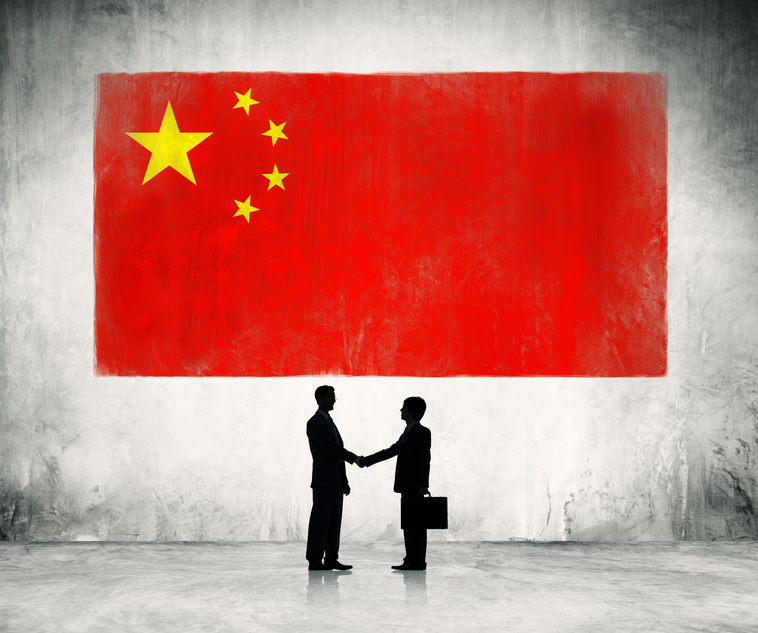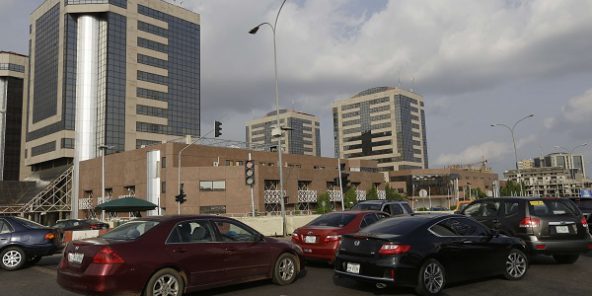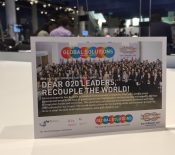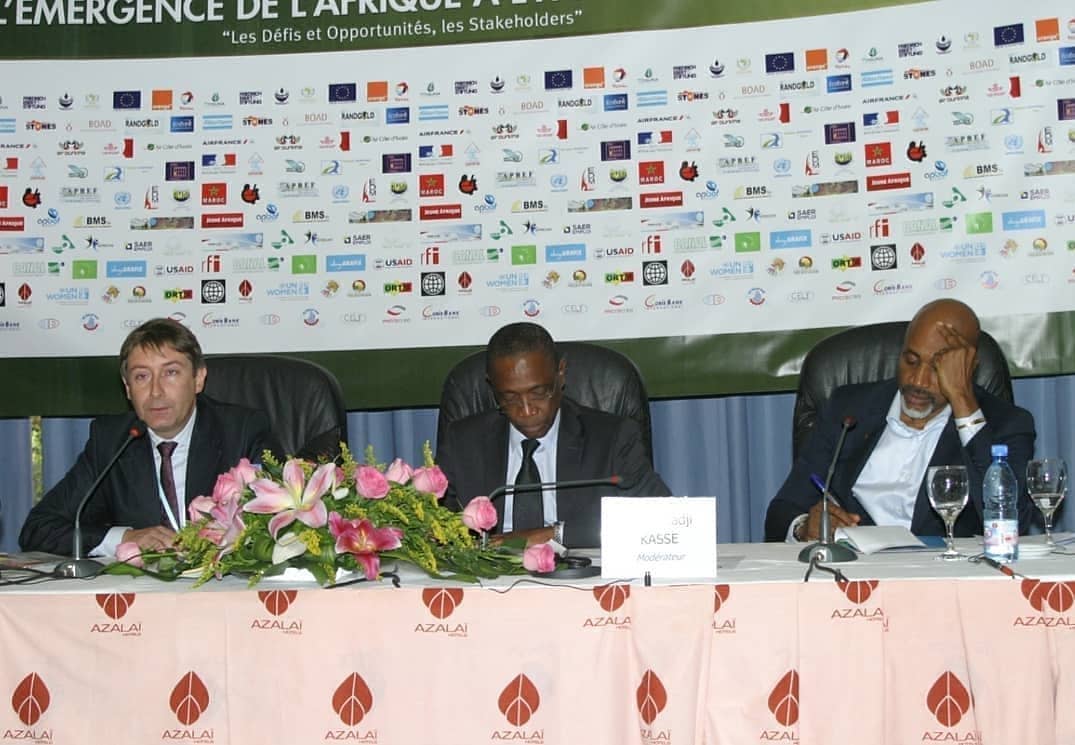Research Paper: One Belt One Road and the Reconfiguration of EU-China Relations
At the 2017 Davos Economic Forum, Chinese President Xi Jinping emphasized the merits of globalization and called for more effective measures and structural reforms to establish equitable governance and build new growth models. The “One Belt One Road” (OBOR) initiative has been accelerated with the Chinese presidency of the G20 in 2016 and advocates more inclusive regional cooperation and offers ambitious plans to further tighten connections across the Eurasian and North African continents.
This paper highlights the reconfiguration of EU- China relations and explains the evolution of the trading flows between the two actors under the “One Belt One Road” initiative.
France Might Miss The Great African Transformation
No French diplomat was present at the launching of the African Union “2016 Transition Report” in New York on September 21st. Is it because it is an internal matter of the African Union, or is it symptomatic of a French disregard for the transformation of the continent ? In either case, it appears that it is one of the many signs that France stands idle by as Africa undergoes many changes. Read Joel Ruet’s analysis on this matter in this OpEd published in Jeune Afrique
T20/G20 Policy Brief: GREEN SHIFT TO SUSTAINABILITY: Co-benefits & Impacts of Energy Transformation on Resource Industries, Trade, Growth and Taxes
By R. Andreas Kraemer (lead) – Center for International Governance Innovation (CIGI), Canada,Joël Ruet – The Bridge Tank, France,Barry Carin– Center for International Governance Innovation (CIGI), Canada, Max Gruenig– Ecologic Institute, Germany & United States, Fernando Naves Blumenschein & Renato Flores– Fundação, Getulio Vargas(FGV), Brazil, Akshay Mathur– Gateway House, India, Clara Brandi – German Development Institute (GDI-DIE), Thomas Spencer– Institut du développement durable et des relations internationales (IDDRI), France Sebastian Helgenberger & Sonja Thielges– Institute for Advanced Sustainability Studies (IASS), Germany, Scott Vaughan– International Institute for Sustainable Development (IISD), Canada,Shelagh Whitley– Overseas Development Institute (ODI), UK, Hermann Ott– Wuppertal Institute, Germany.
“Energy transformation towards 100% renewable energy is economically inevitable, and socially and environmentally desirable, yet it may produce negative signals in outdated statistics as fossil trade diminishes and the sector shrinks. This paradoxon should be addressed in a joint report by, e.g., IRENA, IMF, OECD, andthe World Bank, and the Task Force on Climate-Related Financial Disclosures.
Fossil fuel extraction and commodity trade will end, and fossil asset values erode. The industry’s role in capital formation, international trade, economic activity (GDP), and government revenue will decline. New energy systems, based on efficiency, renewables, storage, and smart management are cheaper to build, run and maintain. Growth of electricity use stimulates innovation, value creation, and growth in consumer rent, as renewable energy technologies harvest free environmental flows that are not traded and often for self-consumption. Total utility will grow while trade, GDP and the tax base may shrink. Reports should inform G20 Leaders, Ministers of Finance and Central Bank Governors on the true costs and benefits, and alert them to misleading signals.” Read More …
Joël Ruet attends the “Think20 Global Solutions” summit
Between the 29th and the 30th of May 2017, the Think20 Summit of Global Solutions was held in Berlin. The Bridge Tank was represented by president Joël Ruet. Ruet discussed with the African Union delegation, notably the Vice Chairperson of the African Union Commission Thomas Kwesi Quartey, on the role of Chinese, Indian and European investments in Africa. This discussion was a preparatory step to The Bridge Tank’s attendance at the African Union Summit to come late January 2018.
The Bridge Tank attends the 12th Confederation of Indian Industry Conclave on India-Africa in New Delhi
On the 9th and 10th of March 2017, the Confederation of Indian Industry held its 12th Exim Bank Conclave on India-Africa Project Partnership in New Delhi, India. This conclave was notably inaugurated by Pranab Mukherjee, President of India, and M.J. Akbar, minister of external affairs. Speakers included Nirmala Sitharaman, Indian Minister of Commerce and Industry, Gen V. K. Singh, former Indian Minister for Foreign Affairs, the King of Swaziland Mswati III, the President of Uganda Yoweri Museveni, and Ruhakana Rugunda, Prime Minister of Uganda. Over 6,000 delegates from 45 African countries and 5,000 Indian delegates took part in this conference. The Bridge Tank has been taking part in the CII’s conclaves every year since 2015.

Global Conversation with the Senegalese Industrialist-cum-Designer Aïssa Dione
Rapid population growth, mass unemployment, the need to develop African economies: all these issues call for entrepreneurship and enhanced know-how of the African populations, especially among its youth…
Continue reading “Global Conversation with the Senegalese Industrialist-cum-Designer Aïssa Dione”

A Convenient Climate Justice : India’s Ambiguous Position
As the COP21 conference draws closer, India is refusing to follow the open position of China and provide figures on emissions declines. The Environment Minister of India, Prakash Javadekar, admitted that the government’s priority right now is on electricity access and poverty reduction, even though 13 of the 20 most polluted cities in the world are in India. That being said, India’s willingness to modernise its industry and increase the energy potential matched the spirit of the sustainable development goals in some ways, since the country has the ambition to obtain a solar energy capacity of 100GW by 2022. Read more in Frenchin that editorial of Joël Ruet and Sophia Semlali, published in Telos on the 9thof December 2015.
Participation of the Bridge Tank in the 15th edition of the Bamako Forum
The city of Bamako hosted the 15th edition of the Bamako Forum from February 19 to 21, 2015, organized by Malian President Ibrahim Boubacar Keïta. It offers a chance to public decision-makers, professionals from the public, parapublic and private sectors, international institutions, development partners, civil society and the media to take stock of the continent and analyze the operational and political conditions for its emergence. This forum brought together over 300 people.
All these challenges and opportunities (migration, security issues, religious radicalism, unemployment, especially youth unemployment, the development of youth entrepreneurship, the quality of public services and links between the state and citizens, the progress of regional integration) that Africa must face were addressed during this Forum to enable the emergence of Africa by 2035. This event was therefore entitled “The emergence of Africa by 2035: challenges and opportunities, stakeholders.
During these debates, participants aimed to define the conditions for transforming growth into productive and stable jobs for the continent’s populations, as well as to define political and macroeconomic strategies for accelerated and sustainable growth in Africa.
The President of the Bridge Tank, Joël Ruet, was accompanied by two African members of the steering committee: Elhadj Kasse and Mamadou Lamine Diallo.
Joël Ruet intervened during the debate on the financing of the Malian reconstruction by proposing innovative solutions and by underlining that the world was in full budgetary expansion. He argued that Mali had good margins to raise transformative debt that it should use to rebuild.
The Vice President of the West African Development Bank also spoke at the roundtable.
On the sidelines, Joël Ruet had the opportunity to discuss with Younoussi Touré, former president of the Malian National Assembly and supporter of opposition leader Soumaïla Cissé in the Malian presidential election.







